The Nancys by R.W.R. McDonald
Ashley Kalagian Blunt, Senior Program Officer
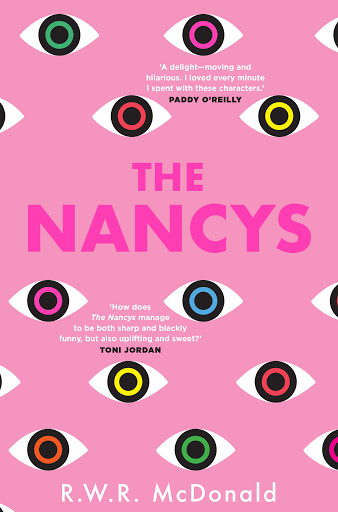
R.W.R. McDonald’s debut novel is as quirky and fun as its eyeball-patterned pink cover suggests. Set in a small town outside Dunedin, New Zealand, the story is narrated by 11-year-old Tippy, whose father died the previous year. When Tippy’s mother wins a cruise vacation, she invites Tippy’s Uncle Pike and his partner, Devon, to babysit while she’s away. As a hairdresser and a fashion designer, Pike and Devon are over the top characters, nicely offset by Tippy’s earnestness. When one of her teachers is murdered during her uncles’ stay, Tippy convinces them to play Nancy Drew and help solve the crime. Though it sounds like it might be for younger readers, McDonald is writing for adults. The coy language the uncles use with Tippy goes over her head, providing great humour for knowing readers.
Night Letters by Robert Dessaix
Sarah Mott, Project & Communications Officer
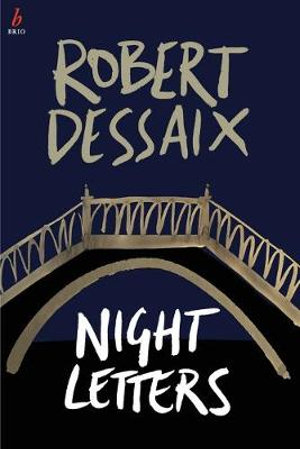
Reading Night Letters made me feel like I was sitting on a back verandah on a warm night with Dessaix, lazily but frankly discussing mortality in a way that Australian culture doesn’t make room for. It’s intimate, intellectual, and a little bit tongue-in-cheek.
The fact that Dessaix doesn’t use the word AIDS once in this book is refreshing. Refusing to name it somehow took its power away, temporarily for the protagonist at least, as well as for the reader. There is no doubt that the protagonist is facing a slow, agonising death, but instead of remaining in Melbourne to succumb to this, or fight the disease, or even pretend it doesn’t exist, he allows himself to travel and drift along in an effort to participate in his immediate remaining moments as fully as possible. What we get is a series of experiences, conversations and musings from his travels that allow for a reflection on everything – sexuality, love, death, fate and what awaits us all.
Dessaix structures the story as a bundle of letters found in Melbourne, published and commented upon by an unknown, pompous and slightly irritable editor/historian. It highlights how beautifully ephemeral life of the letter writer was – we can only assume he has died and this is all that remains, to be picked over and appraised for his life’s worth.
You need to know your classics for this – ponderings lean heavily on Western ideas of literature and philosophy. Word up on your Dante, Catholic canon, French lit and Greek philosophy. Framed in today’s broader understandings, it can come off a little narrow and colonialist. Similarly, a deeper knowledge and experience of the emotional and social drivers of the 90s AIDS crisis would have made the flashes clinical and cold process of dying in Melbourne against the colourful vitality of the stories and experiences in the writer’s European travels all the more poignant.
I put Night Letters down feeling quietly awed. This feels like a book I will come back to at different ages, as I get to know death and life a little more intimately.
Little Women by Louisa May Alcott
Alina Haque, Membership Intern
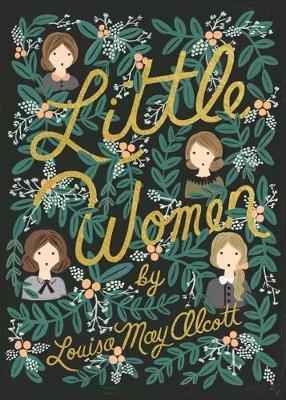
Following the success of Greta Gerwig’s film adaptation of Little Women, I decided to explore Louisa May Alcott’s classic. Little Women (1868) follows the coming-of-age adventures of four unruly, inventive sisters growing up in the shadow of the American Civil War.
Reading Little Women as a young woman is like looking into a mirror that has seen the face of your mother, and her mother, and hers. The novel strikes a chord deep within its readers as Alcott explores the premise of first love, the aftermath of loss and the importance of hearth in the context of hormone-addled youth. As you track the interwoven storylines of Meg, Amy, Beth and Jo, there exists a mutual recognition between yourself and Alcott’s words; they are telling your story and you are living theirs.
At the brink of womanhood, Jo dreams of escaping the confines of domesticity and marriage to become a great writer. She finds herself unable to endure the loneliness of spinsterhood, both suffocated and reassured by all she has ever known. As the March sisters fall away to time, the pages of Little Women are flooded with a rawness central to the singular experience of female adolescence.
How to Write an Autobiographical Novel? by Alexander Chee
Lou Garcia-Dolnik, Membership & Administration Officer
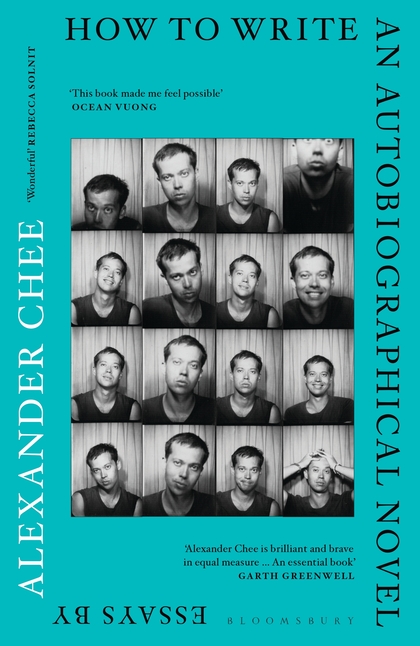
Is the role of the reader-reviewer to write against cliché? Sorry to disappoint—this book was really good. Alexander Chee’s collection of essays, ‘How to Write an Autobiographical Novel’, works through the rewriting and becoming of past selves, through literature, therapy, the careful and attentive cultivation of roses, relationships, national and personal tragedies. In traversing all the hallmarks of American (gay) history since the 80s—the AIDS crisis, tarot reading, bookselling at minimum wage at an LGBTQI bookshop, and cater-waiting for William F. Buckley—Chee weaves an education in writing into the fabric of the mundane and life-changing alike, at once ambitious, tender, harrowing. I wish we had the space here to praise each essay individually. This book is deserving of it.
All the same, there were moments of class agony that deserved fuller attention–his claim that ‘all writers are social class traitors’ alongside tales of revelry in the insurance allowance-bought Alfa Romeo in the wake of his father’s death striking a chord–though those were, I felt, absolved by the unyielding honesty Chee brings to the subject of money, his mother’s bankruptcy and his own relationship with saving/thrift. It’s not really my call. I’m also unsure if it is possible to write a collection of essays so emplaced in the American identity quandary without considering Native American presences on land?
I’ll be real. Sometimes it feels like too much of a commitment to sit down and take the hour to write these posts. I’ve been reading too much good lately, and how do you write an original, insightful review (in one-two paragraphs no less) about the book everyone swears by? This collection of essays felt larger than it was. Something like I felt interpellated by these essays. Something like I felt seen. Sorry, but that doesn’t quite cut it. I wish Chee would stop writing altogether—these essays are too trenchantly observant, too heartbreakingly pragmatic to demand more from their writer. Yet, I want more. More of this sore healing. What is that experience of being left out in the cold with all the knowledge you could ever possibly want and then, in the distance, a fire burning?
Oh yeah, “like stars falling out of the sky and into the sea and gone.”
Yellow Notebook: Diaries Volume I 1978–1987 by Helen Garner
Emily Riches, Program Intern
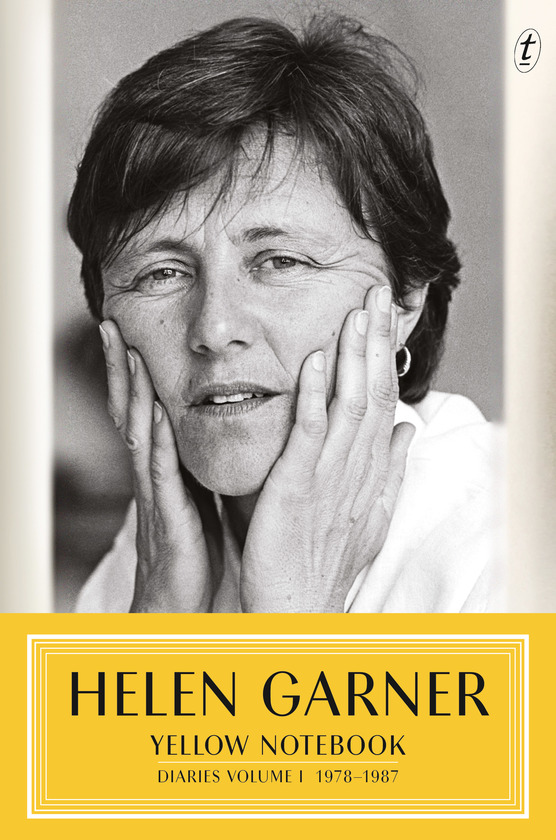
As a fan of Helen Garner’s fiction and essays, I was excited to hear that she had released a volume of her diaries. While Garner’s work often draws on autobiography (her first novel Monkey Grip was infamously critiqued as being a reworking of her personal diary), it feels quite rare to be privy to a writer’s thoughts and the interests that inform their writing: for Garner, these include the psyche, classical music, court cases, and the complex web of relationships between friends and family.
The book is organised chronologically but does away with specific dates, which lends it the feeling of a collage of fragments and observations. Garner’s playfulness and intellect shine through as she gives equal weight to both the profound and the mundane: marvelling at her sister’s healing caesarean scar, she thinks, “really it’s a wonder people ever die” to recounts of neighbourhood events, “Tiberio came into the café and reported that Mario in the pasta shop had just cut the tip of his finger off.” Her descriptions are always exacting and precise, in a way that encourages you to see the world with her sharp, observing eye. This volume of her diary was written in the period where she was working on her novel The Children’s Bach (which I read immediately after), and chronicles her struggle with self-doubt: the hard slog of writing like “a spider yanking thread out of its own guts…” is punctured by moments of inspiration, where it all suddenly works. Other larger narrative threads running through these years include her relationships with men and her inner turmoil as she wrestles with questions of faith and spirituality.
Ultimately, it gives us a great insight into a writer’s life and process. And it seems there’s more instalments to come. David Astle, recounting an interview with Garner, said, “My first question was more a gibe: ‘Gee, Volume One, that sounds ominous.’ Cue Helen’s wicked glee.” I, for one, can’t wait for the next.
Normal People by Sally Rooney
Claire Thompson, Program Officer
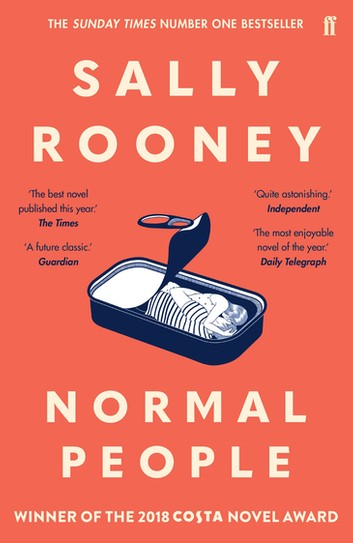
Sally Rooney in her novel Normal People explores complex issues like domestic violence, grief, suicide, depression, anxiety, eating disorders and privilege, within a sparse plot. If you asked me what actually happened in the book, I’d find it hard to tell you. The plot is barely there, instead this novel focuses heavily on character development and relationships. Spanning over a number of years, Rooney focuses on the relationship between Connell and Marianne. Starting in high school when Connell was the popular kid and Marianne the social outcast, to college years where their roles are reversed with Marianne as the social butterfly and Connell as the oddball who struggles to know the right way to behave in social situations. Rooney creates rich, multifaceted characters who feel real through the authenticity of their dialogue, and by giving us an insight into their thoughts with an omniscient narrator.
Rooney captures the uncertainty that comes with leaving high school, the insecurities that follow social missteps, and the isolation you can feel at university. Normal People is a deeply sad novel; while there are hopeful moments, there is a pervading sense that Marianne and Connell’s relationship is toxic, and they’ll never reach a point where they can be happy together due to their unresolved issues and internal conflicts. Yet despite the toxicity, it is only with each other they feel safe and truly like themselves.
For more book recommendations from the Writing NSW staff, have a look at our other What We’re Reading blog posts below or here.
More from Writing NSW
Check out our full range of in-person writing courses in Sydney, our online writing courses and our feedback programs to see how we can help you on your writing journey. Find out about our grants and prizes, as well as writing groups across NSW, and sign up to our weekly newsletter for writing events, opportunities and giveaways.
